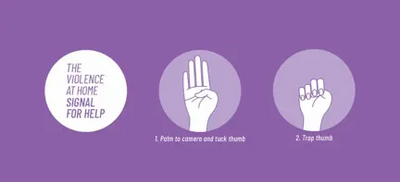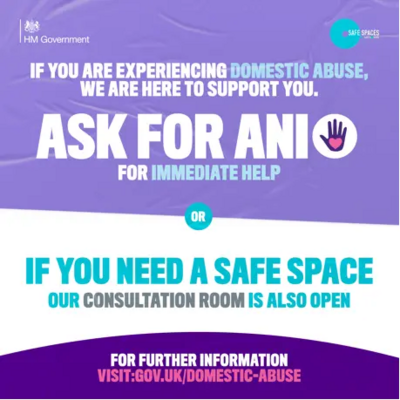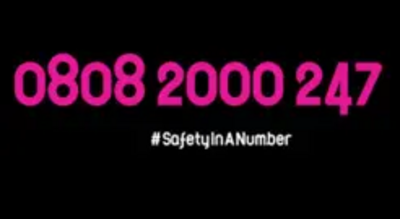Saying 'no' to Domestic Abuse
No-one should live in fear of violence and abuse, yet too many women have to do just that. Emerging data and reports from those on the front lines show that violence against women and girls, particularly domestic violence, has intensified during the pandemic. It's International Women's Day 2021 on 8 March and this is a good time for us all to be aware of the forms abuse takes and how we can help and support women.
Abuse takes many different forms:
- coercive control and 'gaslighting'
- sexual abuse (being pestered, forced or being told they will leave you if you do not do this)
- economic abuse (being forced to work, beg for money and being stopped from learning)
- online abuse (having emails, social media, texts calls monitored)
- threats and intimidation
- emotional abuse
If you believe that you or someone else could be a victim of domestic abuse, signs to look out for include:
- being withdrawn, or isolated from family and friends
- having bruises, burns or bite marks
- having finances controlled, or not being given enough to buy food or pay bills
- not being allowed to leave the house, or stopped from going to college or work
- having internet or social media use monitored, or someone else reading your texts, emails or letters
- being repeatedly belittled, put down or told you are worthless
- being pressured into sex
- being told that abuse is your fault, or that you're overreacting
You should be aware of the help signal, which can be used during video calls:

You're not alone and there are places you can go to for help. There are safe spaces in local hospitals and at many pharmacies (including Boots and Superdrug) and other retailers such as Morrisons. Look for an ASK for ANI poster.

If your life is in danger always call 999. If you're deaf or unable to talk use the text-phone service: text REGISTER to 999 and you will get a reply on what to do next.
If you are experiencing abuse it is important to remember it is not your fault and you are not alone.

Help and services are available from:
https://www.nationaldahelpline.org.uk/
Phone/TypeTalk: 0808 2000 247
https://mensadviceline.org.uk/
Phone: 0808 801 0327
info@mensadviceline.org.uk
https://www.galop.org.uk/galop-to-run-national-lgbt-domestic-violence-helpline/
Phone: 0800 999 5428 help@galop.org.uk
https://chat.womensaid.org.uk/
This has a live chat service
Mon-Fri 10am-4pm and Sat-Sun 10am-12pm
National helpline for victims of honour-based abuse, forced marriage and domestic abuse
Phone: 0800 5999 247 support@karmanirvana.org.uk
Confidential helpline for anyone concerned about abuse of an older person
Phone: 0808 808 8141
http://www.mwnuk.co.uk/Helpline_181_c.php
National specialist faith and culturally sensitive helpline that is confidential and free to access
Phone: 0800 999 5786 Text: 07415 206 936 info@mwnhelpline.co.uk
https://www.nspcc.org.uk/what-is-child-abuse/types-of-abuse/female-genital-mutilation-fgm/
If you are worried about a child at risk or someone who has already undergone FGM
Phone: 0800 028 3550 fgmhelp@nspcc.org.uk
https://www.suzylamplugh.org/pages/category/national-stalking-helpline
For victims of stalking, their friends, family and professionals - Mon, Tue, Thu and Fri 9:30am-4pm, Wed 1-4pm
Phone: 0808 802 0300
Domestic abuse support for deaf people in British Sign Language (BSL)
Phone: 020 3947 2601 Text, WhatsApp, Facetime: 07970 350366
Advocacy and support services to disabled victims and survivors of abuse
Phone: 0208 519 7241 Text: 07587 134 122 enquiries@staysafe-east.org.uk
Support services for Latin American women suffering from domestic abuse. If calling is not safe, email with your name, phone number and the best time to call you
Phone: 0771 928 1714 Mon-Thu 10am-1pm 0759 597 0580 Mon-Fri 10am-1pm referrals@lawrs.org.uk
https://www.opoka.org.uk/?locale=en
Help and support for Polish women
Helpline:03003651700